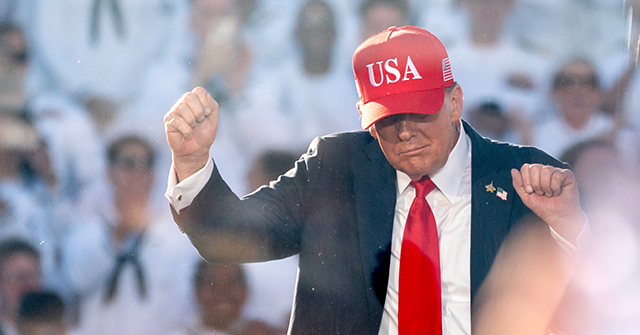Learning the false story of manufacturing employment decline
For decades, politicians have promised to restore factory jobs. A new working paper by two liberal economists at Stanford’s Institute for Economic Policy Research attempts to make sense of this theory. what really boosts manufacturing employment. It’s full of useful data. But in trying to defend conventional wisdom against tariffs, he ends up advocating for precisely the policies — Donald Trump’s tariffs — that he is trying to oppose.
Economists Jared Bernstein And Daniel Posthumusin a working paper published last month, examined manufacturing employment from 1949 to present. Their decomposition is simple: employment growth is equal to production growth minus productivity growth. The story is clear.
From 1949 to 1970, factory jobs grew 1.4 percent per year because production growth has outpaced productivity gains. From 1970 to 2000, employment stagnated as productivity accelerated. Since 2000, jobs have fallen 1.2 percent per year as output growth has collapsed.
The worst period was from 2000 to 2010the period of the “Chinese shock”. As Chinese imports flooded U.S. markets, 5.7 million factory jobs disappeared. The trade deficit reached 6.5 percent of GDP. Entire communities have been devastated.
Bernstein and Posthumus call this period “destructive” and say such shocks should not happen again. Then they oppose the only policy tool that could actually prevent it.
The contradiction of dependencies
The newspaper opposes “radical tariffs” on the grounds that “half of our imports are inputs into the domestic manufacturing industry.” Tax these imports, they say, and you make American production more expensive and less competitive.
But this statement proves too much. If American factories are dependent on foreign parts that taxing them would cause significant disruption, what does that say about our vulnerability?
Bernstein and Posthumus themselves advocate subsidies for sectors “vulnerable to export controls by trading partners” – semiconductors, batteries, critical minerals. These are areas where foreign suppliers could disrupt us, thereby threatening national security or economic stability. But if we are so dependent on imported inputs that tariffs would disrupt production, we are extremely vulnerable to export controls. The authors’ anti-tariff argument accidentally proves that we have weakened our industrial base to a dangerous degree.
You can’t have both. Either imported inputs are essential to our production – in which case this dependence represents exactly the strategic vulnerability that justifies repatriating production – or they are not essential, in which case tariffs will not cause the expected disruptions.
The authors have documented a crisis and then argued we were too dependent to solve it.
Pricing did not take place
But let’s put logic aside for a moment and look at what actually happened. Trump imposed draconian tariffs from April 2025, including Liberation Day tariffs. The authors published this article in September, months after these tariffs took effect.
According to critics of customs tariffs, prices should have increased significantly. They predicted that rising import costs would be passed on to consumers. Kamala Harris called it a national sales tax. Anti-tariff economists insisted that Americans pay the tariff tax.
Except that’s not what the data shows. Harvard Business School’s Tariff Price Tracker, which monitors the prices of tariffed imports relative to non-tariff domestic products as well as those of domestic products whose prices could be affected by tariffs, finds that prices of non-tariff domestic products increased further than the prices of tariffied imports. The prices of domestic products considered affected by customs duties – because they contain many tariffed inputs or compete with imports – have been falling since Liberation Day.
The alarming tariff story has collapsed. Importers absorbed costs through lower margins. Foreign exporters have reduced their prices to maintain their market share. Domestic competitors kept prices stable to gain a share of imports. Planned price increases did not materialize.
This completely undermines the central economic arguments against tariffs. If tariffs don’t raise consumer prices – and so far the evidence indicates they don’t – what’s the argument against imposing them? That they might raise prices in the future? That they violate the theory of free trade?
At some point, evidence matters more than theory.
Tomorrow: Part II of our review of Bernstein and Posthumus’ article.









